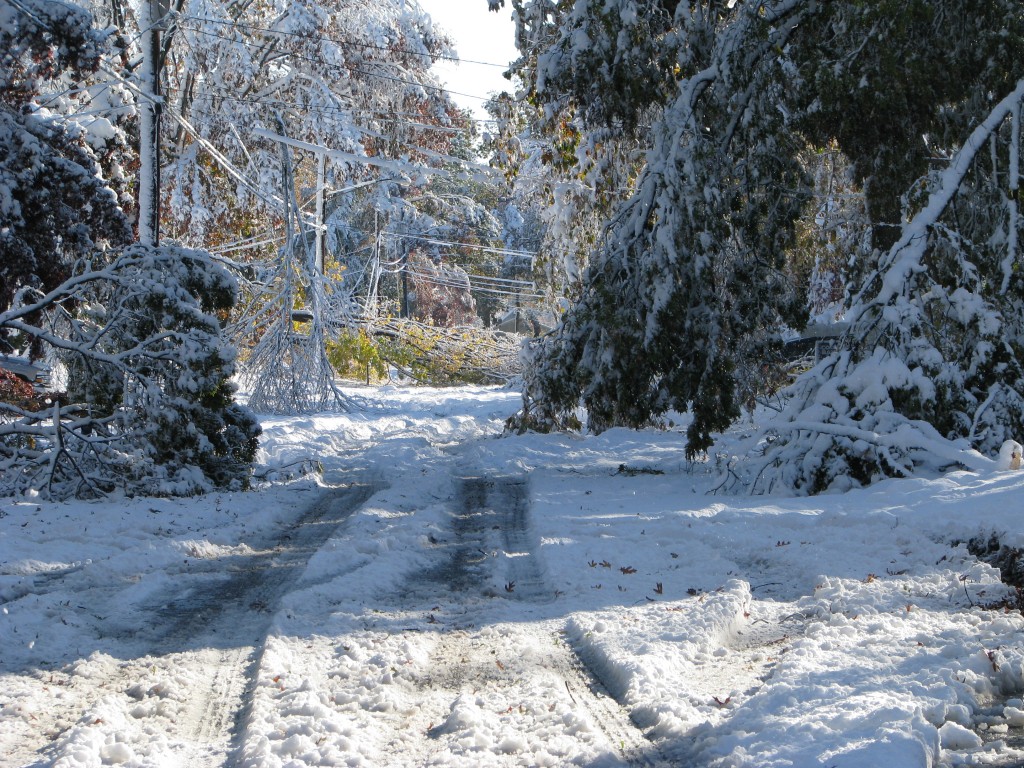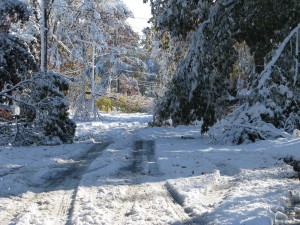October Trees
Marla Deschenes
Inspiration
MELTING OCTOBER SNOW – a story excerpt
by Lisa L. Leibow
Response
Bettina waited for the elevator, picking at the edges of an old wallet-sized photo in the pocket of her brown leather coat and hoping she’d finally tracked down the one person who might know what really happened to her mother. Her father’s, “She’s singing with the angels, now,” may have satisfied the girl in pigtails, who had skipped to the kindergarten bus stop, bounded onto his belly every time he had read Hop on Pop at bedtime, and simply had asked, “Why I don’t have a Mommy like the other kids at school?” She didn’t understand why her father couldn’t trust her with the truth. After all, she wasn’t a child anymore. That morning last month, when blotches of red on her underwear surprised her, proved she was a woman.
She might have screamed when she saw the blood if it hadn’t been for Connie from Girls On The Run, bragging about the Coach purse her mother bought her to tote tampons, and for Ms. Johnson’s health lessons the year before, in fifth grade. There was something final about Bettina’s period. It killed the childish notion that when she grew up, she’d have to slather shaving cream all over her face and shave her chin like her dad.
She pressed the call button for the elevator for the third time and looked at the indicator above the door. The light for the eighth floor didn’t waver. “Slow elevator,” she muttered under her breath and pulled the picture from her pocket. On the back, curly letters in faded blue ink read, Troy, Love will keep us together. Yours forever, Tammy. A smiling freckled face with voluminous auburn hair feathered to the margins smiled at Bettina from the old yearbook picture. She’d never met this woman. Yet, she had more in common with her than she did with her dad.
The only reason she had the snapshot in the first place, was because she’d been working on a timeline of events related to civil rights for social studies class and had run out of glue. She had rummaged through every drawer in the house for tape, a glue stick, anything to attach the last photo of Rosa Parks to the assignment, finally winding up in the top drawer of Dad’s bedside table. She raked her hand through the layer of pocket change, pencils, and old receipts to find blue eyes like hers staring up at her. Bettina examined the square jaw and upturned nose – an older version of Bettina with big hair. Stuffed into the same junk drawer, a ceramic frame with a heart-shaped mat held a photo of this same woman in a white gown fit for Cinderella, walking down a white carpet toward a thinner version of Bettina’s Dad in a tuxedo. Bettina held her breath and squinted, trying to remember if she’d ever seen her father without eyebrows pinched together and shoulders cinched up to his ears. This guy with the effortless smile and smooth forehead meant that her father either had a long-lost happy twin, or had a life before Bettina that gave him joy.
In the photo, an older man to the bride’s left clasped her fingertips. He leaned toward her. Thick gray hair and full cheeks framed a bulbous nose. She’d never met her grandfather or any relatives on Mom’s side of the family. This was the moment Bettina came up with the idea to look for them. She couldn’t bare her father’s glossy distant look and clenched teeth each time she questioned the slightest detail about her mother, like whether Mom had planted the tulip bulbs that popped up around the mailbox every spring. Once she asked a few simple questions about where they went on their first date? Did they have a song? He’d headed straight for the cabinet over the refrigerator, pulled out the black-labeled bottle, and kicked a shot of Jack Daniels. No telling what he’d do if Bettina asked him to delve into real memories of their life together, or worse yet, how she died?
The elevator signal-bell rang, the door opened, and she stepped in. When she reached the sixth floor of the nursing home, she followed the signs to Room 918, took a deep breath, and knocked.
A gravelly voice, said, “Come in.”
The door squeaked as she pushed it open. “Hello?”
A bed dominated the room. It was one of those adjustable beds she always wanted to fold in half at the mattress store next to Dippin’ Donuts. In a chair next to it, sat an old man who looked more like a crumpled brown pair of pants and sweater with wrinkly face glued to the collar. His white hair had streaks of gray, like muddy tire tracks through an unplowed winter road. He opened his paper-thin eyelids and looked in Bettina’s direction, widening his eyes, dropping his jaw, and reaching for the aluminum cane leaned on the windowsill beside him.
“It can’t be… Tammy?”
Until now, every bit of colorful past had been hidden like a forest after a blizzard in October. Vibrant burgundy, mustard gold, and warm cinnamon brown of autumn joy, wind-whipped and buried in heavy, wet snow of grief. She’d found her grandfather. This would change everything.
(To be continued…)

